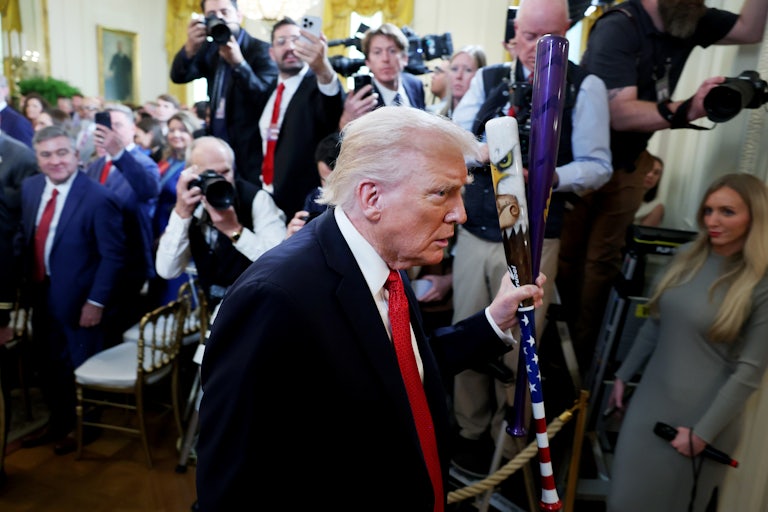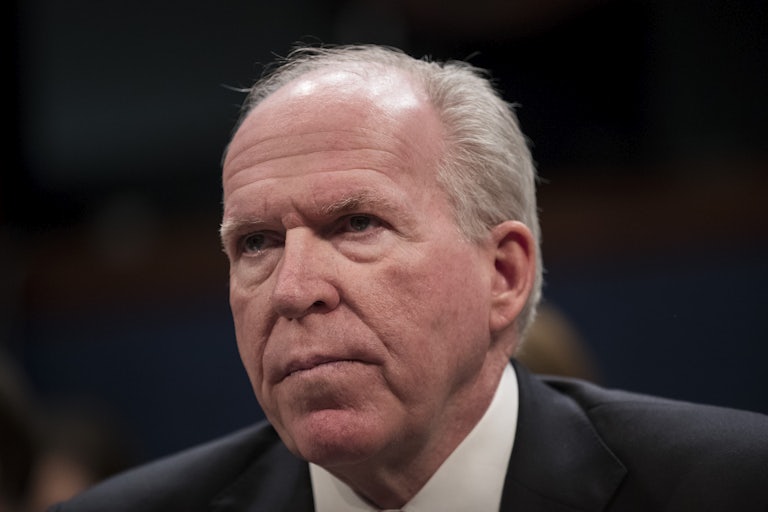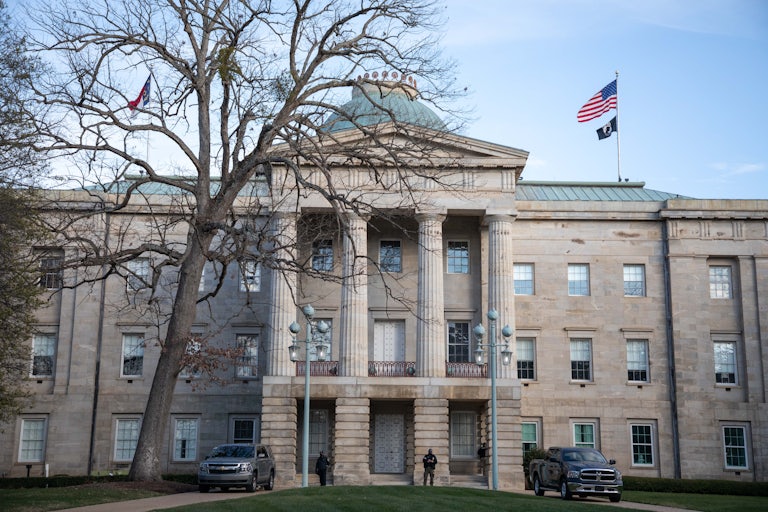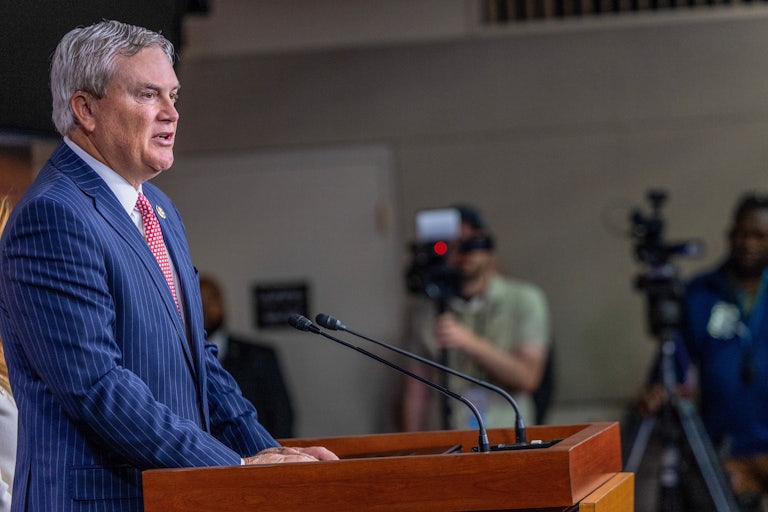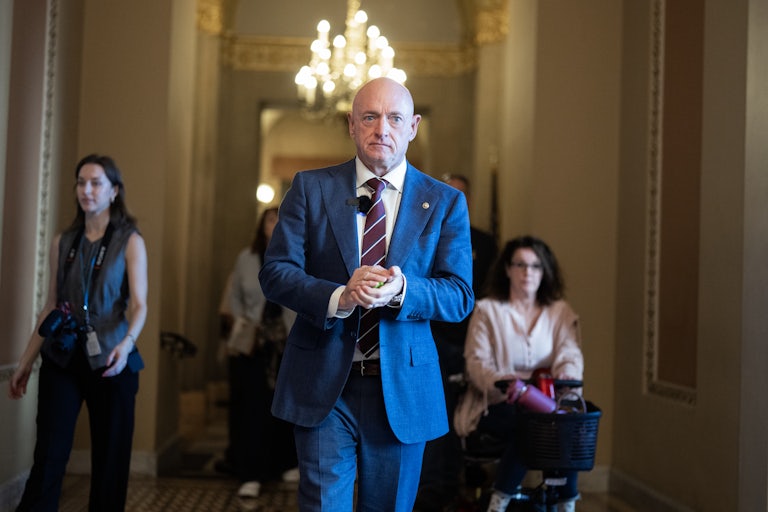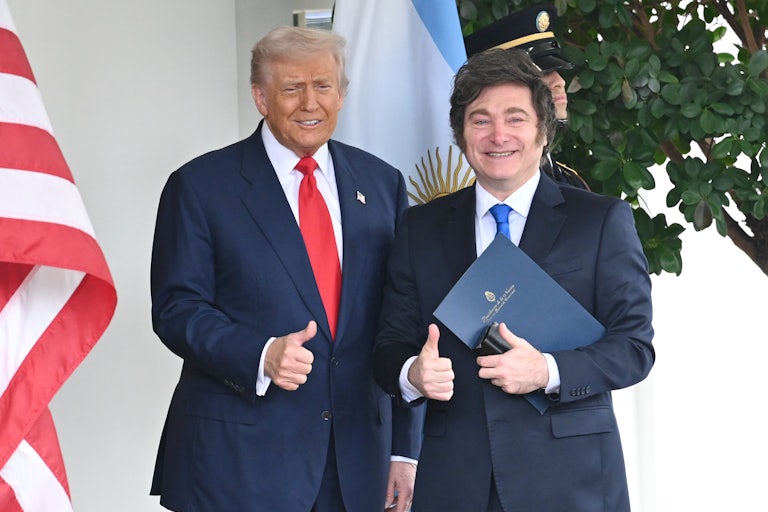Pete Hegseth’s New Move Will Make It Harder for Congress to Stop Him
Pete Hegseth is trying to choke back the flow of information to Congress.
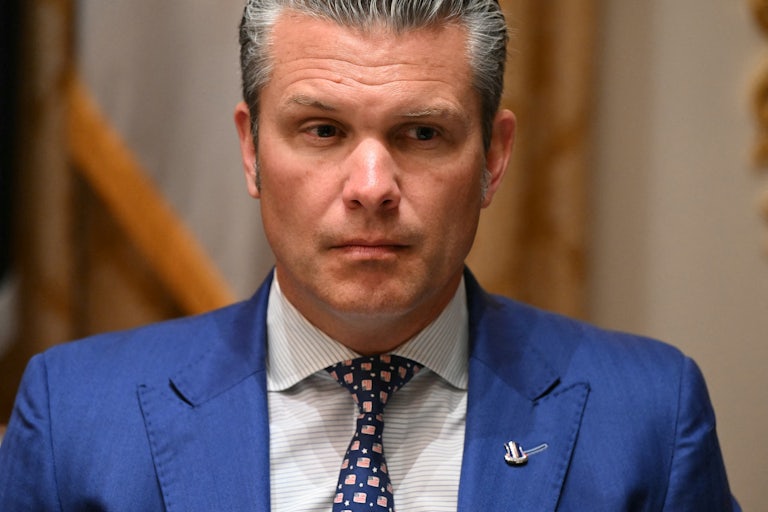
The Department of Defense now requires department staffers to channel all communications with Congress through the Pentagon’s central legislative affairs office.
A October 15 memo, obtained by BreakingDefense, marks a change in policy for the administration, further limiting access to military HQ. The only exception to the rule will be the Pentagon’s inspector general office. All other DOD personnel will be required to coordinate exchanges with members of Congress and state elected officials via the Pentagon’s assistant secretary of defense for legislative affairs.
Using the Trump administration’s unofficial moniker for the department, Defense Secretary Pete Hegseth and Deputy Defense Secretary Steve Feinberg wrote in the co-signed memo that the Department of War “relies on a collaborative and close partnership with Congress to achieve our legislative goals.
“This requires coordination and alignment of Department messaging when engaging with Congress to ensure consistency and support for the Department’s priorities to re-establish deterrence, rebuild our military, and revive the warrior ethos,” the memo reads.
“Unauthorized engagements with Congress by DoW personnel acting in their official capacity, no matter how well-intentioned, may undermine Department-wide priorities critical to achieving our legislative objectives,” they add.
Members of the House Armed Services Committee were less than thrilled by the development.
“Congress decides who Congress will talk to, and the continued efforts of the secretary to wall off the department is not consistent with past tradition, and I frankly don’t think it’ll fly with the members or leaders of the committee,” California Representative George Whitesides told BreakingDefense.
A congressional aide who spoke with the military-focused publication said that the new policy could “potentially backfire” on the Defense Department, especially as Congress chips away at the 2026 National Defense Authorization Act—a process that can sometimes require the Pentagon to supply details “within minutes.”
It’s the latest in a larger Pentagon clampdown on transparency under Hegseth’s helm. Last week, 40 to 50 members of the Pentagon press pool packed up their desks at the department, loudly rejecting a 21-page pledge that, in part, forbids journalists from soliciting any information from government employees without express permission from the Pentagon. Just a handful of journalists remain—roughly 15 out of hundreds of credentialed reporters—representing blogs, freelancers from foreign publications, and One America News.

